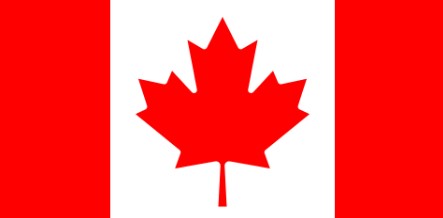

Trilateral Offices meet to discuss ways to enhance patent quality and improve efficiency
ALEXANDRIA, VA—The Trilateral Offices, comprising the European Patent Office (EPO), the Japan Patent Office (JPO), and the United States Patent and Trademark Office (USPTO), met today at the USPTO headquarters in Alexandria, Virginia for their 43rd annual meeting. The meeting was hosted by Under Secretary of Commerce for Intellectual Property and USPTO Director John A. Squires, who welcomed EPO Vice-President Steve Rowan and JPO Commissioner Yasuyuki Kasai for discussions on strategies to enhance patent quality and operational efficiency through advanced information technology (IT) tools. The World Intellectual Property Organization (WIPO) also participated in an observer capacity, represented by Lisa Jorgenson, Deputy Director General, Patents and Technology Sector.
Together with industry sector representatives from the Trilateral regions—BusinessEurope, the Japan Intellectual Property Association, and the American Intellectual Property Law Association and the Intellectual Property Owners Association—the offices reviewed key developments in the rapidly evolving patent landscape and their impact on patent office practices and procedures. The meeting highlighted patent filing trends across technologies and regions, and explored how IT and artificial intelligence (AI) tools can help patent offices address new challenges and improve efficiency.
In a collaborative session, the offices and industry stakeholders exchanged views on the tools and systems employed by each office, sharing insights on their implementation and best practices. The offices also discussed recent developments in patent law relating to AI in their respective jurisdictions and considered ways to promote greater alignment in the treatment of AI-related inventions.
“As the global patent community embraces new tools to enhance patent examination, we at the USPTO are committed to advancing a shared vision with EPO and JPO on how AI tools empower examiners and improve patent quality. Our trilateral discussions reaffirm that our innovation governance must evolve in step with technology. Together, we are paving the way where AI serves examination with precision and transparency, while the laws and practices guiding us remain firmly grounded in sound policies and best practices.”
— USPTO Director John A. Squires
"This year’s Trilateral meeting underlined the importance of advanced IT and AI tools in enhancing quality and efficiency in the patent system worldwide. The Trilateral is an important forum for collaboration. It is a space where new ideas can take shape and approaches promoted that can deliver meaningful impact for users. The EPO remains committed to this spirit of co-operation — focusing on its core business of providing quality, timely and legally robust patents, while embracing new technologies that strengthen the global patent system for today and into the future."
— EPO Vice-President Steve Rowan
“AI technology is a groundbreaking innovation, comparable to the rise of the internet, with the potential to transform patent examination. Furthermore, as technology evolves, inventions are becoming increasingly complex and sophisticated. It is essential for IP offices to effectively leverage AI to improve the efficiency and quality of patent examination processes. The advancement of AI technology also poses new legal challenges to us. We will take the lead in addressing the various challenges posed by this technological innovation. Together, we will contribute to the development of an IP system that meets the needs of users.”
— JPO Commissioner Yasuyuki Kasai
“WIPO is expanding its use of advanced IT tools and AI to enhance the quality and efficiency of our IP services, including through application processing, translation and classification. It was an honor to participate in this meeting and discuss WIPO’s experiences in navigating the evolving patent application landscape, while also sharing how we support our Member States’ uptake of new IT and AI tools through the provision of a forum for discussion, as well as the dissemination of practical resources like toolkits, guidance documents and other informational material.”
— WIPO Deputy Director General Lisa Jorgenson
Looking ahead, the Trilateral Offices reaffirmed their commitment to ongoing collaboration within the Trilateral framework. They will explore AI-related cooperation opportunities that incorporate the feedback received from Industry Trilateral to achieve efficiency and quality. The Trilateral Offices agreed to establish a Trilateral AI Working Group that will collaborate on creating a Trilateral AI Vision. The working group aims to report out findings at the 44th Annual Trilateral Conference that the EPO will host in Vienna, Austria.
16F.-1, No.1-67, Wuquan Rd., West Dist., Taichung City 403, Taiwan (R.O.C.)
TEL:04-23755668 FAX:04-23755778
E-mail:chern-bon@umail.hinet.net
Design:GEYES


























